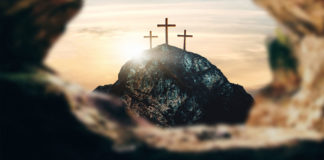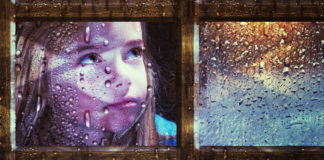Hygge your life
A room lit only by candles. Soft music playing in the background. A worn but unbelievably soft and comfortable armchair beside a roaring fire. A mug of hot chocolate topped with two marshmallows. You, wrapped in a hand-knitted blanket, seated on the armchair, the mug in your hands.
Instant regrets, memory wipes & free will
Have you ever done something you immediately regret? Perhaps you’ve let your emotions get the better of you, lost control and said something particularly harsh to a friend in the heat of a moment—you wish you could take the words back the moment they left your lips.
The school of happiness
The issue of education generates heated discussions and numerous controversies. The dialogue with Professor Steve Dickman, the director of a private high school in Savannah, Tennessee, presents a time-proven education model. The objective is not only in the acquisition of knowledge, but also in the skills to apply it in real life, for one’s own good and the blessing of others. The by-product...
Clash of sexual cultures (II)
Jessica was 19 when she had to tell her parents, both practicing Christians, that she was pregnant. That moment generated a real earthquake in the young woman’s family who, together with her boyfriend at the time, had been strongly involved in the purity movement, an ideology that promotes sexual abstinence until marriage, for religious reasons.
COVID-19: How to stay efficient at work when your kids are near
How can one be efficient with your tasks when you no longer have an office of your own? How can one divide themselves between children, household chores and deadlines? How can one excel in their job without losing their mind or at least their patience? These are questions I had to face during the pandemic, even if working from home, around children, is...
“Divine Providence: God’s Love and Human Freedom” | Book review
Bruce Reichenbach's book, Divine Providence: God’s Love and Human Freedom is impressive first of all due to the author’s total disinterest in impressing his readers. Instead, he has a legacy to pass on.
How can we prepare for a potential infection with COVID-19?
Although a small minority deny the existence of COVID-19 (claiming that it is a malicious conspiracy), most people are interested in what they can do to be as prepared as possible for a potential encounter with the dreaded virus.
How do I learn to really enjoy life?
I don’t remember much about the moment. I remember its warmth, and the way it glowed with purpose and spirit. But the stage is blurry. The song which pulsed out from it is uncertain. I know it came from a good friend of mine, one whose spot-lit glory provoked in me no jealousy, no feeling of being left out.
It’s about guilt
Mainstream culture has tried to airbrush guilt out of everyday life. It’s the ultimate social faux pas, it seems, to make someone feel guilty—How dare you judge me! Or maybe it’s the penultimate faux pas, because what’s even worse than making someone feel guilty inside is to shame them in front of others.
The trouble with alcohol
Elspeth Muir’s brother, Alexander, died from drowning. It was 2009, and he had just turned 21. He died from drowning, but his death “was not foreshadowed by his love of water except that it explains why he was near a river, alone, with a blood-alcohol content of almost 0.25. My brother died because he was drunk, and because the drink made him stupid.”
Suffering evil and loving your enemies
The greatest Teacher I have ever known is Jesus Christ, and one of His most profound teachings is 'Love your enemies'.
Really Living
The following interview was conducted by Hope Channel Romania almost ten years ago when the guest, Pastor Don Schneider, was the president of the Adventist Church in North America. Last year, on May 23, he passed away at the age of 76. Those who follow Hope Channel remember that, for a few seasons, they were able to watch his show, Really Living. Every...
Family and Christian values
"One of the acceptable idolatries among evangelical Christians is the idolatry of the family." This statement, posted by Pastor Kevin DeYoung on his X (formerly known as Twitter) account, has gone viral on the social media platform, garnering over 1,600 likes, but also fierce criticism and requests for clarification.
Paradise seen from the outside
In wisdom you made them all; the earth is full of your creatures – Psalm 104:24
The noble torment of forgiveness
We know that authentic forgiveness is Christian and desirable. And we also know it feels good to receive genuine forgiveness. But does God ask us to forgive under all circumstances? We often try to discover the answer to such uncomfortable questions about God by looking at those who say they know Him. And, sometimes, we have something to gain by doing so.


























